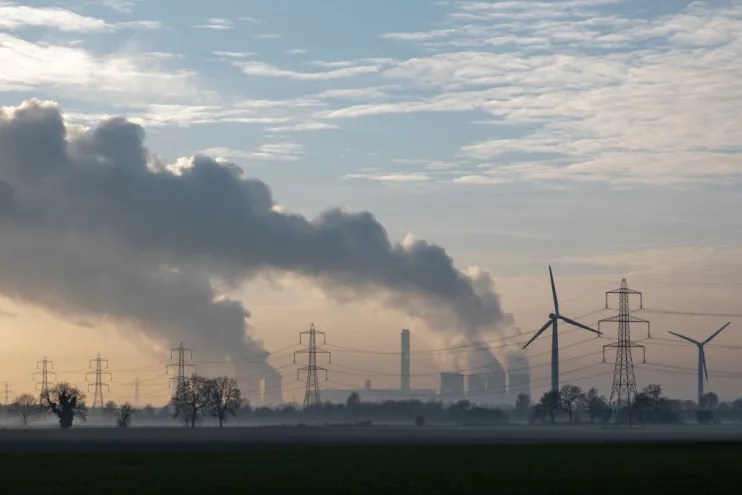UK biomass subsidies undermining efforts to stop global warming, report warns

UK government biomass subsidies are undermining efforts to tackle climate change, a new report has warned.
Biomass energy generation, which typically involves burning wood pellets, creates more CO2 per megawatt-hour of energy than burning fossil fuels when considering the full chain from fuel production to electricity generation, the paper by the free market think tank the Institute of Economic Affairs (IEA) said.
However, biomass smokestack emissions are officially credited to the country where the trees are grown, primarily the United States and Canada.
This means wood burning is officially considered ‘zero carbon’ in the United Kingdom and attracts large taxpayer subsidies.
Many UK companies have sought to take advantage of the loophole in recent years by swapping out coal generation for biomass, requiring millions of tonnes of imported wood pellets.
The most famous of these is Drax, which operates the UK’s highest-polluting facility and has repeatedly come under fire for not recognising the damage of its biomass practices.
Just this week, the company received the first stage of approval from the government to build a carbon capture facility in an attempt to offset these emissions, a build that could cost the taxpayer billions in the coming years.
The IEA’s report comes on the same day that a government consultation will begin to potentially grant the company a potential £4bn biomass contract extension to 2030.
“Government subsidies must end,” said Sir Peter Bottomley, MP for Worthing West who endorsed the IEA research.
“Burning wood for energy will make global warming worse for decades to come and anyone who claims biomass at-scale can be ‘renewable’ is ignorant at best, fraudulent at worst,” he said.
Christopher Snowden, the report’s author and IEA chief of lifestyle economics, added: “Current carbon accounting practices create perverse incentives and allow governments to boast about reductions in carbon dioxide emissions that only exist on paper
“It is difficult to imagine the British government permitting, let alone subsidising, the incineration of imported wood chips to generate electricity if the emissions were counted on its own balance sheet.”
The IEA report argued natural gas was a greener and cheaper alternative to biomass in the short term and nuclear in the long term.